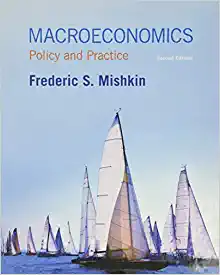Question
Consider a market for a homogenous product with four active companies. Firms have a constant marginal cost of production of $10. The market demand is
Consider a market for a homogenous product with four active companies. Firms have a constant marginal cost of production of $10. The market demand is given by D(P) =90 - P Firms set prices in a repeated game with infinite horizon and a discount factor (delta delt ) [0,1] (a) [12 marks) Construct a subgame perfect equilibrium with trigger strategies in which firms collude on the industry-profit maximising prices and punish deviation by reverting forever to the static Nash equilibrium. Under which condition does this equilibrium hold? (b) (12 marks] Suppose the market demand only arises every second period. In other periods, demand is equal to zero. Construct a subgame perfect equilibrium with trigger strategies in which firms collude on the industry-profit maximising prices and punish deviation by reverting forever to the static Nash equilibrium. Under which condition does this equilibrium hold? (c) [12 marks] Suppose all four firms are active in two markets. Market A is described by the set-up in subquestion (a) that is, demand arises in every period. In the second market, market B. demand only occurs every second period as assumed in subquestion (b). Construct a subgame perfect equilibrium with trigger strategies in which firms collude on the industry-profit maximising profits and punish deviations by reverting forever to the static Nash equilibrium in both markets. Under which condition does this equilibrium hold? Explain the difference to (a) and (b).
Step by Step Solution
There are 3 Steps involved in it
Step: 1

Get Instant Access to Expert-Tailored Solutions
See step-by-step solutions with expert insights and AI powered tools for academic success
Step: 2

Step: 3

Ace Your Homework with AI
Get the answers you need in no time with our AI-driven, step-by-step assistance
Get Started


